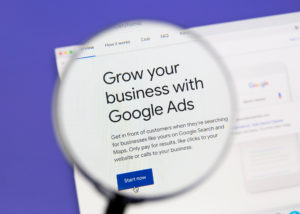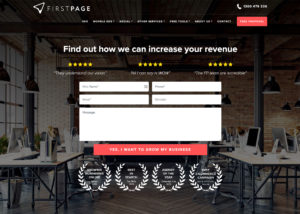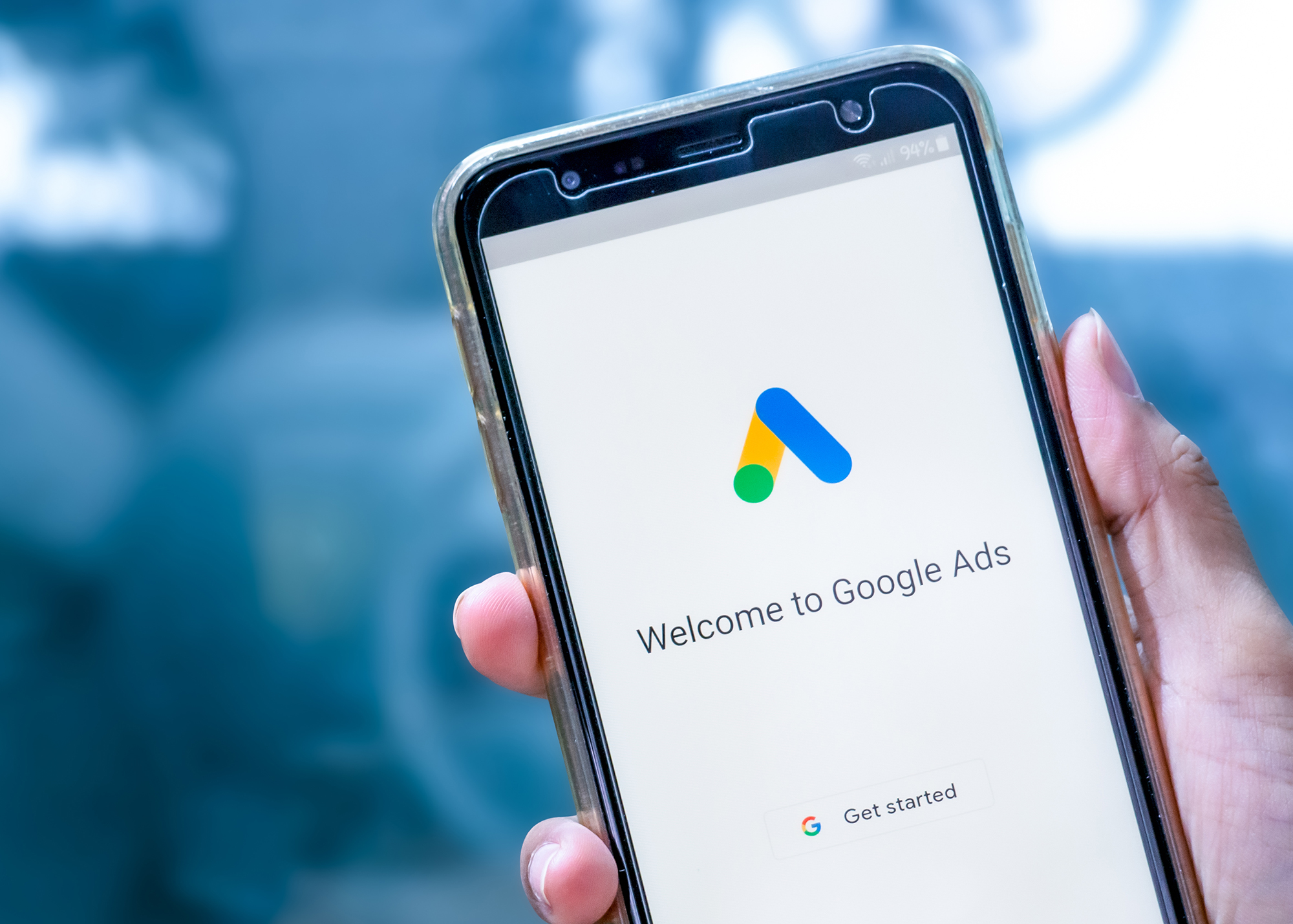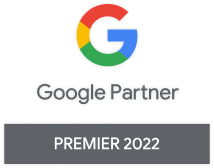Did you know there’s a science to Google Ads? Here’s how Google ads bidding works
Did you know there’s a science to Google Ads? Here’s how Google ads bidding works
The year 2000 was a pretty wild one, not only with Brad Pitt and Jennifer Anniston’s wedding but also with the launch of Google AdWords changing digital marketing forever.
What began with a couple of hundred advertisers grew to a mega-platform used by over a million businesses and marketers!
If you’re looking to advertise products and services in Google’s search results, you need to generate a digital marketing strategy around Google Ads. Previously known as Google AdWords, this incredible pay-per-click advertising service generates leads and sales for countless companies.
Google Ads sees advertisers bid on keywords used by their target market when they look something up in the search network. This approach ensures brands display ads to people with a proven interest in what they bring to the table.
However, to experience the success you want, you must have a robust understanding of Google’s auction and bidding systems. So, to help you get up to speed, we’ve explained the basics to ensure you a successful Google Ads campaign.
Why Use Google Ads?

Image source: IB Photography / Shutterstock.com
There are countless benefits of using Google ads, which is probably why it’s the preferred paid advertising platform of so many businesses worldwide.
High Click-Through Rate
Google Ads have a high expected click-through rate (CTR). This means that if you create an ad and it appears in front of a user who is searching for something related to your business, there’s a good chance they’ll click on it.
This is obviously good news if you’re trying to drive traffic to your website and generate brand awareness.
High Return on Investment
Google AdWords consistently delivers an outstanding return on investment (ROI) because it uses a pay-per-click (PPC) model, meaning you only pay if someone clicks on your ad. There’s no money wasted here!
Driving Sales and Leads
Another benefit of Google Ads is that they can be very successful in driving sales and leads. Of course, this depends on how well your ads are targeting potential customers and whether or not they include relevant keywords.
Personalisation
No matter what your goals are or who your audience is, Google lets you take control and form an ad that suits your needs. With a razor-sharp approach, you can plan and execute a campaign that is destined to achieve your business goals.
Google Ads Auction?
Google conducts an auction each time a google search is made to determine which Google Ads display and in what order. This is referred to as an ad auction.
This might surprise you, but the best ad position doesn’t automatically go to the highest-paying advertiser. In reality, the Google Ad auction is a lot more complex, but we’re here to clear a few things up about the process.
How the Google Ads Auction Works

Each time a user searches on Google, an auction is held to determine which ads will be shown on the results page and receive the best Google ad rank.
For an advertiser’s ad to be included in the auction, they must first submit it to Google. Once submitted, Google will then determine if the ad is appropriate and whether it meets its quality standards. If the ad meets these criteria, it will be included in the auction – hooray!
The first stage of the auction process, which occurs almost instantly upon every search, involves businesses placing bids on keywords. By telling Google the maximum amount you’d like to pay to receive a click for specific search terms, you’re entered into the PPC advertiser pool.
When someone uses Google to conduct a search that’s related to your keyword, Google’s algorithm will consult with the advertiser pool to find candidates for the ad auction. The system then chooses a winner based on several criteria – not just the highest bid.
This is where your Quality Score becomes particularly influential. However, Google will also calculate Ad Rank (Quality Score x maximum bid) to determine the business that gets the best ad rank in the search results.
Quality, not Quantity
The auction itself is conducted in real-time and takes into account several factors, such as the max bid and the quality score.
It’s important to remember that the person who bids the highest amount of money does not always win the auction, as Google also takes the quality score into account.
This means that Google Ad Auctions benefit both advertisers and users, by helping increase revenue while ensuring that only relevant and high-quality ads are shown to users.
How Does Google Ads Bidding Work?

Your bid itself is pretty self-explanatory – it’s just the amount that you’re willing to pay per click.
However, your quality score is a bit more complicated. This is a measure of how relevant and useful your ad is likely to be to the person who sees it, and it has a huge impact on your bidding price and overall ad spend.
The higher your quality score is, the less you’ll have to bid to see results. So, you’ll probably pay less than someone with a lower quality score – even if they’re willing to pay more per click. This is because Google knows that your ad is more likely to be relevant and useful to the searcher, so they don’t need to charge as much to get you in front of them.
So, when you place a bid on a keyword, Google looks at both your bid and your quality score to determine how much you’ll pay per click.
Maximum Bid
Getting your bidding strategy right is crucial to achieving a stellar ROI from your Google AdWords campaign.
Primarily, you must select the maximum bid (Max CPC), which is the most you’re willing to pay for each auction.
While you can set this number for each keyword, you can also select a maximum bid for your ad group. Throughout this process, Google will provide helpful advice about typical bids placed on keywords that you’re targeting.
Manual vs. Automated Keyword Bidding
You can also choose between a manual and automated keyword bidding strategy. The latter sees an algorithm decide how to use your budget to achieve your goals which can save you time. However, opting for manual bidding strategies lets you control your campaign completely – ensuring you never miss an opportunity.
Guide to Google Ads Success
Although millions of businesses have used Google AdWords to their advantage, designing and implementing an effective campaign requires careful consideration. And since most of your rivals are also using PPC services to grow their business too, you need to figure out how you can do it better!
But how do you take the crown? You need to develop a clear marketing strategy that targets the ideal keywords, appeals to your audience and resonates with Google’s guidelines. To give you a head start, we’ve broken down the major areas so you fully understand the process.
Identify Relevant Keywords

Keywords are imperative to bidding on Google Ads. By developing a thorough understanding of the highly relevant keywords and phrases your audience uses when they search for products and services like yours, you can make sure you bid on these terms to capture their attention.
However, it’s essential to know that bidding on broad and hugely popular keywords will have a higher cost per click than others because there are a lot of other people targeting the same keywords.
This means brands working to a strict budget should consider more specific long-tail keywords that aren’t as commonly used but attract a more exact target market.
Using Google’s Keyword Planner, you can quickly research the best terms for your campaign while also receiving bid estimates that help forecast your spending.
Understand Quality Score

To ensure people using the search engine only see ads relevant to their needs, Google developed the Quality Score.
The quality score is that special sauce that determines the success of your Google Ads – so you definitely want to pay attention to all its ingredients!
This insightful metric presents advertisers with a score ranging from 1 to 10 that reflects the quality of your ads, keywords and landing pages. So, if you have a high quality score, it means that your ads are more likely to be successful and have a high conversion value.
There are a few key factors that go into determining your quality score:
Expected Click-Through Rate
The expected click-through rate is all about how often people who see your ad click on it, and it’s a good indication of how relevant and engaging your ad is.
It’s measured by how well your chosen keywords have performed in the past while determining how closely they match the search terms.
If Google gives you a low expected click-through rate, it’s time to take a closer look at your keywords and make sure they’re relevant to your target audience and their search intent. By focusing on your quality score, you can ensure that your Google Ads campaigns are as successful as possible.
AD RELEVANCE
Your ads must remain highly relevant to your customers to achieve a top Quality Score.
If your ads are relevant to the keywords you’re targeting, you’re more likely to get clicks and conversions. On the flip side, if you’re targeting irrelevant keywords, all you’re doing is wasting money on clicks that don’t convert.
However, the good news is that it’s possible to increase this score through keyword research, keyword optimisation, landing page improvements and more. Make sure your ad copy is compelling and relevant to your target keywords and audience to truly put your best foot forward.
Landing Page Experience
You have to link your advertisements to a landing page on your website when creating a Google Ads campaign. You don’t want to mislead your customers when they click on your ad and see that your landing page doesn’t match.
Do you want your customers to click on an ad and leave as soon as they see your landing page? Or do you want them to spend more time on your site and become a paying customer?
Google assumes that leads who don’t move past the landing page to the checkout aren’t interested in what you have to say. This is why it’s so important to deliver the best experience for customers by developing a compelling, relevant message that convinces people to take action after viewing your ads.
Measuring Google Ads Performance
Mastering the art of Google Ads is an ongoing process. To ensure Google Ads success, you should always track your Google ads performance metrics to see if your campaign is hitting your targets.
Whether you need to modify your target audience, keywords or bidding strategy, make adjustments where necessary to boost your ad’s ranking in Google search results.
Call in the Google Ads Experts

Now that you’ve got the low-down on Google Ads and its auction process, setting up an effective advertising campaign that achieves your objectives should be a bit easier.
However, partnering with an expert Google AdWords management team will undoubtedly level up your results.
With our talented PPC specialists working alongside big and small brands alike, First Page New Zealand has the expertise to reach your ideal target market and get you as many conversions as possible.
Ready to get started? Simply get in touch with our in-house experts and see how our PPC services will help your business smash the competition.














